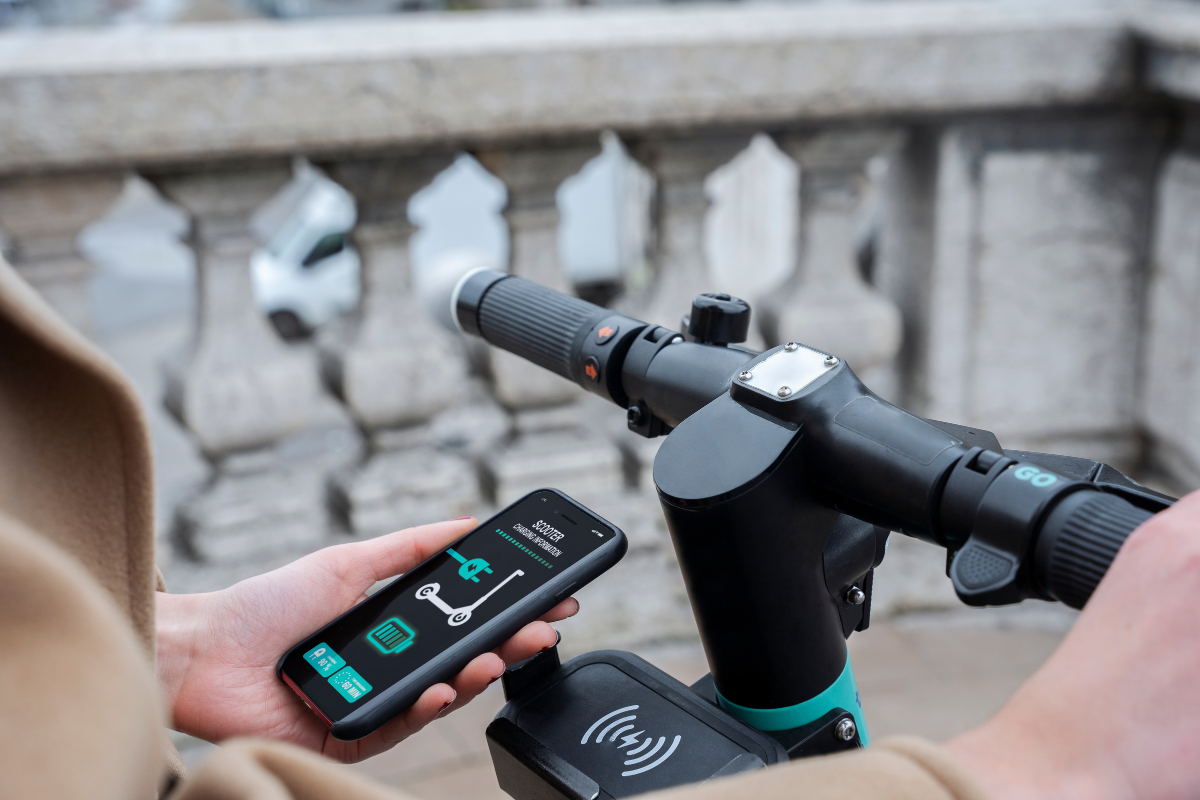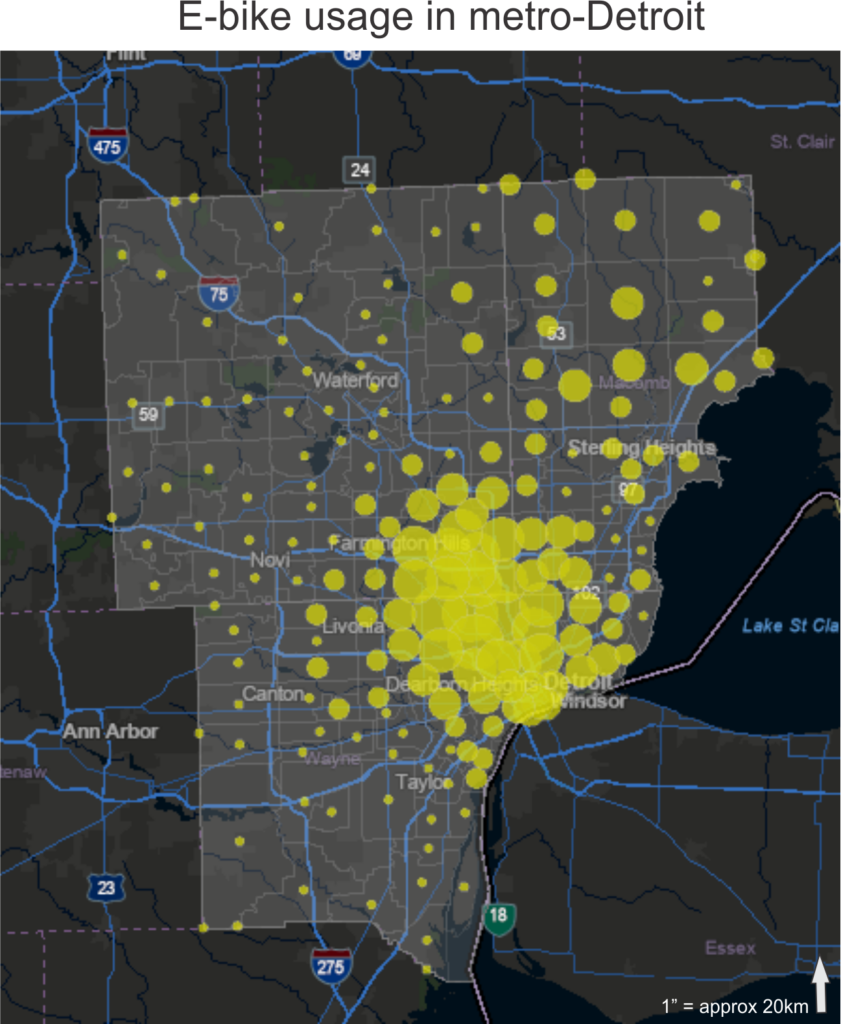Shifting gears toward e-mobility: UM-Flint's Rybarczyk works to transform Detroit's urban transportation

In the heart of Detroit, Greg Rybarczyk, associate professor of geography at the University of Michigan-Flint, is embarking on a transformative journey to redefine urban mobility. With a dedication to sustainability and a meticulous eye for data, Rybarczyk is leading a research effort focused on encouraging the use of e-mobility modes of transportation, including e-bicycles and e-scooters, as a sustainable form of transit.

Rybarczyk's goal is clear: to promote active transportation through e-mobility travel modes to enhance conveyance equity and accessibility in Detroit. In a recent interview, he provided insights into his innovative approach to addressing this critical aspect of urban transportation. He sees these emerging technologies as game changers in the urban mobility landscape.
"E-bikes present a fantastic opportunity for seniors to stay active and mobile," Rybarczyk said. "Beyond the physical exercise it provides, e-mobility is a critical way to stay active and can also foster a sense of independence and freedom for people, especially seniors, allowing them to navigate their communities with ease. For many older adults, cycling represents more than just a mode of transportation; it's a way to stay connected and engaged with their surroundings."
His current study delves into the adoption patterns of e-bikes among different demographics, including senior citizens, aiming to understand the factors influencing the adoption of this mode and to uncover the motivations and barriers to their use. An ongoing aspect of this work is leveraging cutting-edge topic modeling techniques to analyze Detroit resident survey responses, sharing both positive and negative perceptions of this emerging mode of transportation.

While potential health benefits are evident, government officials are grappling with how to promote e-bikes while ensuring rider safety. The diverse speeds and capabilities of e-bikes present unique challenges. "They are exploring ways to encourage e-bike use, but also considering regulations to address safety concerns," Rybarczyk said. Discussions center around crafting regulations to ensure safe usage on roads and trails. Navigating these regulatory intricacies poses a significant challenge for Rybarczyk's research, especially in accessing e-mobility crash data and causes. The major barrier to understanding this more fully is a lack of comprehensive crash data for e-bikes and e-scooters. "The crash reports filled out by officers have remained unchanged for decades," Rybarczyk said. "The absence of specific codes for e-mobility vehicles complicates efforts to accurately track and analyze the where, why and when these crashes are occurring."
In light of this data gap, Rybarczyk and his team are collaborating closely with the state of Michigan to aggregate and analyze crash data and injuries involving e-bikes and e-scooters. This comprehensive data collection effort aims to provide municipalities with invaluable insights into the patterns and factors contributing to e-mobility accidents. Armed with new understanding, local authorities can implement targeted strategies, infrastructure improvements and educational campaigns to enhance their safety, paving the way for a more sustainable and safe active mobility transportation system for Michigan.
A promising direction for future research in Rybarczyk's work is understanding the emotional and social dimensions of e-bicycling among seniors using spatial data science. He plans to capture the lived experiences of older cyclists through surveys, biosensors, and geospatial technology, exploring the sense of joy and empowerment they might derive from pedaling through their neighborhoods to increase their quality of life. Looking ahead, Rybarczyk has outlined ambitious plans for his research, contingent upon securing external grant funding. These potential studies range from examining senior citizens' e-biking habits in Detroit to assessing urban infrastructure's compatibility with e-mobility in major U.S. and
European cities.
Related Posts
No related photos.
Daba Coura Mbow
Daba Coura Mbow is a communications intern in the Office of Research and Development. She can be reached at dabambow@umich.edu.